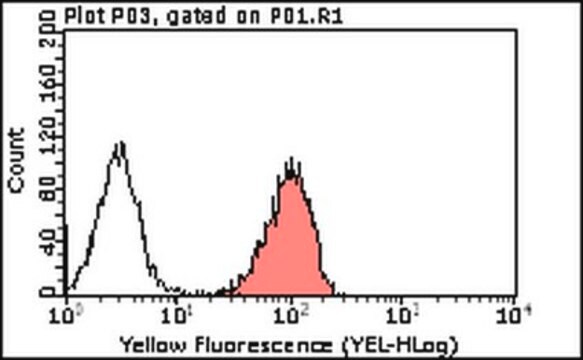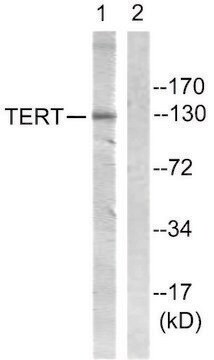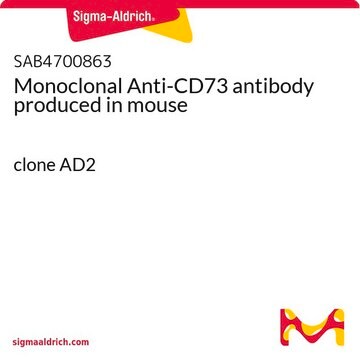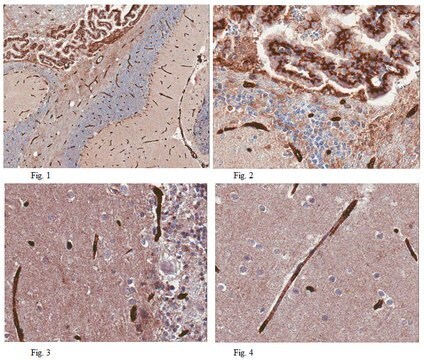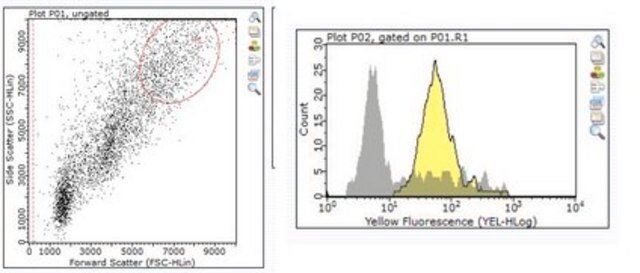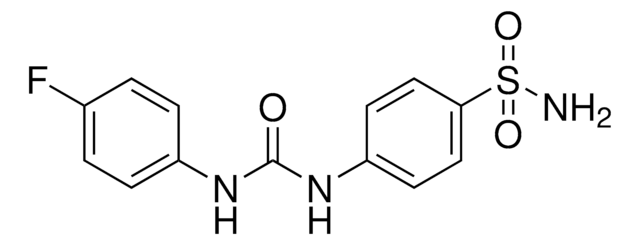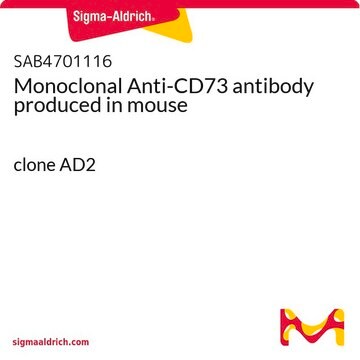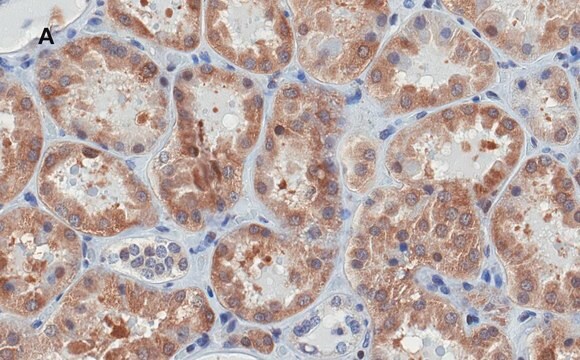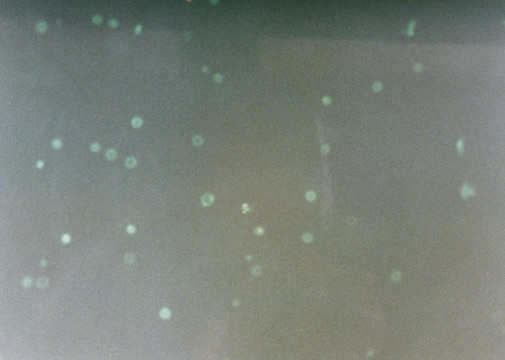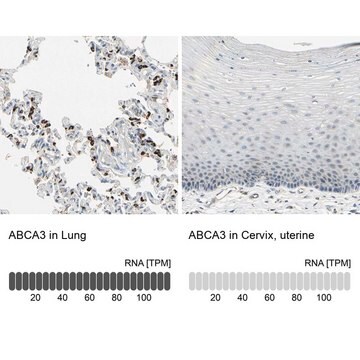MABD122
Anti-CD73 Antibody, clone AA60-E3-3
clone AA60-E3-3, from mouse
Synonym(s):
5′-nucleotidase, 5′-NT, ecto-5′-nucleotidase
About This Item
ICC
IP
WB
immunocytochemistry: suitable
immunoprecipitation (IP): suitable
western blot: suitable
Recommended Products
biological source
mouse
Quality Level
antibody form
purified antibody
antibody product type
primary antibodies
clone
AA60-E3-3, monoclonal
species reactivity
human
species reactivity (predicted by homology)
mouse (immunogen homology)
technique(s)
flow cytometry: suitable
immunocytochemistry: suitable
immunoprecipitation (IP): suitable
western blot: suitable
isotype
IgG1κ
NCBI accession no.
UniProt accession no.
shipped in
wet ice
target post-translational modification
unmodified
Gene Information
human ... NT5E(4907)
General description
Immunogen
Application
Stem Cell Research
Mesenchymal Stem Cells
Quality
Flow Cytometry Analysis: 1 µg/mL of this antibody detected CD73 on 1X10^6 human adipose mesenchymal stem cells.
Target description
Linkage
Physical form
Storage and Stability
Analysis Note
Human Adipose Mesenchymal Stem Cells
Other Notes
Disclaimer
Not finding the right product?
Try our Product Selector Tool.
recommended
Storage Class Code
10 - Combustible liquids
WGK
WGK 2
Flash Point(F)
Not applicable
Flash Point(C)
Not applicable
Regulatory Listings
Regulatory Listings are mainly provided for chemical products. Only limited information can be provided here for non-chemical products. No entry means none of the components are listed. It is the user’s obligation to ensure the safe and legal use of the product.
JAN Code
MABD122:
Certificates of Analysis (COA)
Search for Certificates of Analysis (COA) by entering the products Lot/Batch Number. Lot and Batch Numbers can be found on a product’s label following the words ‘Lot’ or ‘Batch’.
Already Own This Product?
Find documentation for the products that you have recently purchased in the Document Library.
Articles
PLTMax® Human Platelet Lysate (hPL) is a superior serum-free and xeno-free media supplement alternative to fetal bovine serum (FBS) for human mesenchymal stem cell (MSC) cultures.
Our team of scientists has experience in all areas of research including Life Science, Material Science, Chemical Synthesis, Chromatography, Analytical and many others.
Contact Technical Service